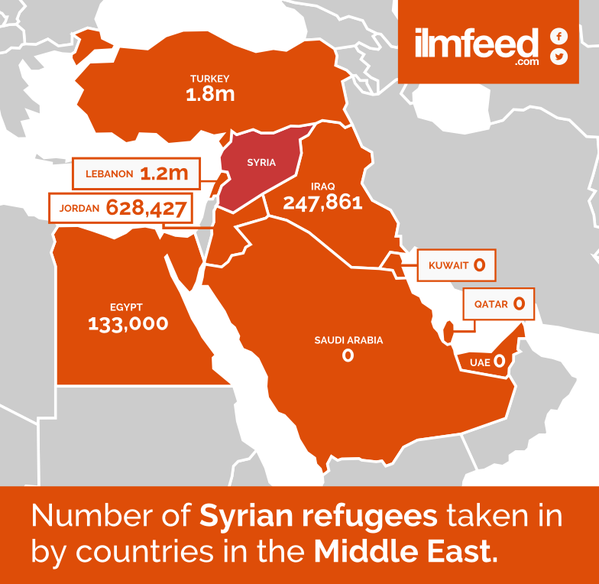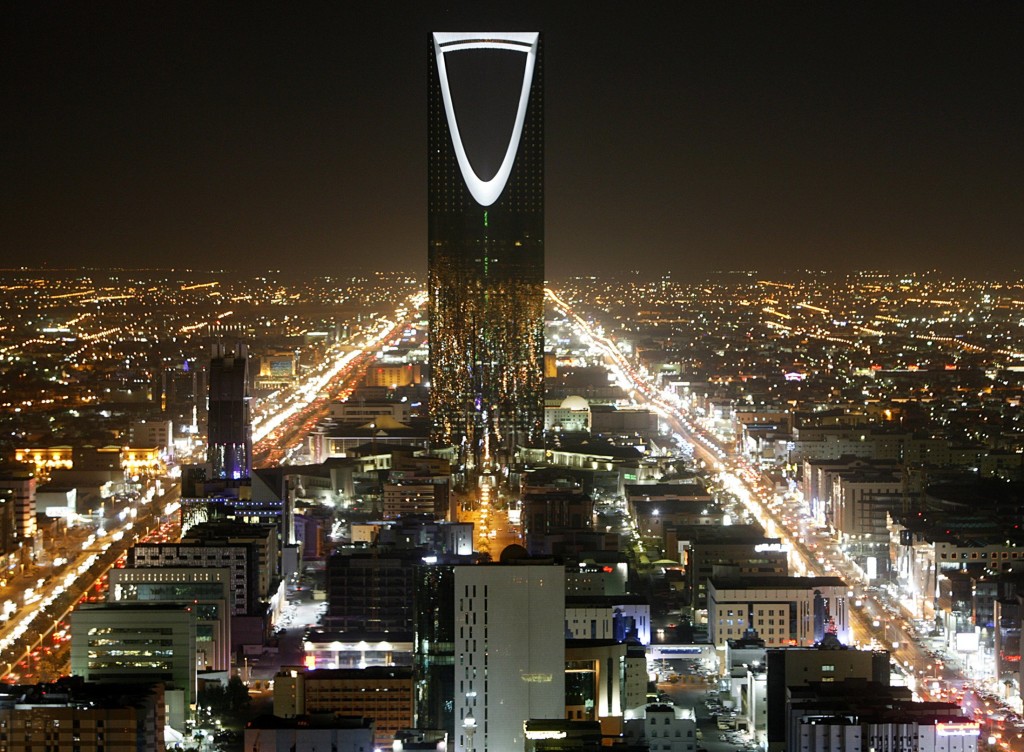Why Rich Gulf States Don’t Take In Syrians
MIDDLE EAST AND NORTH AFRICA, 21 Sep 2015
Jews For Justice For Palestinians – TRANSCEND Media Service
Here’s why rich Arab Gulf states won’t welcome Syrian refugees
By Charles Recknagel, Radio Free Europe/Radio Liberty/ Business Insider
September 04, 2015
It’s hard not to notice how almost all Syrian refugees flee westward rather than seek a safe haven in the rich Arab Persian Gulf states.
Now, social-media users worldwide are increasingly raising the question of why.
On Twitter, the Arabic-language hashtag #Hosting_Syria’s_refugees_is_a_Gulf_duty has become a forum for expressing the indignation many Arabs feel at seeing European states like Germany taking in thousands of refugees while the Gulf states host almost none.
A recent message showed a photo of a drowned refugee with the comment: “It is shameful that they have to roam all about God’s earth and drown in the seas while fleeing death when we are supposed to be closer to them than the West.”
Another Arabic-language hashtag #People_demand_admission_of_refugees has called for a sustained campaign to welcome refugees to the Gulf states.
“The interactions with this campaign are promising,” a recent message urged. “Do not be shy about your demands and tweets. You are the loudest voice here.”
In Europe, too, internet users are calling out the Gulf states. A Facebook community of Syrians in Denmark recently demanded, “How did we flee from the region of our Muslim brethren, which should take more responsibility for us than a country they describe as infidels?”
The vast majority of the 4 million or so people who have fled conflict and hardship in Syria have gone to neighbouring Turkey, Jordan, and Lebanon, where they live in crowded refugee camps.
Thousands have sought to go on to Europe, particularly this year, as the 4-year-old Syrian war shows no sign of winding down. They are attracted to Europe by the opportunity to apply for asylum or refugee status and, if accepted, to get jobs and begin rebuilding their lives.
But if social media are bristling over the fact the rich Arab Gulf states do not offer the same welcome, there seems little likelihood the situation will change. The reason is the Gulf Arab states’ aversion to granting refugee status, not just to Syrians but to anybody.
“There are some Syrians who have found refuge in the Gulf, especially in Qatar, but they would all generally be on some kind of temporary visas,” says Jane Kinninmont, deputy head of the Middle East and North Africa programme at Chatham House in London. “The Gulf countries are not signatories to the international conventions on refugee rights that Western countries and indeed most world countries have signed up to.”
She says their position appears to be motivated by the presence of so many migrant workers in the Gulf states, including from countries like Pakistan, where there is political unrest and repression.
“Their concern would be that if they started recognizing political asylum it could potentially open the doors for a multitude of their temporary workers to stay permanently, and that would raise a lot of quite complex issues.”
The number of migrant workers exceeds the native population in every Gulf country except Saudi Arabia and Oman. In all of the Gulf countries, the vast majority of the workforce is foreign, ranging from 88.5% in Oman to 99.5% in the United Arab Emirates.
Surely Dubai, a city that flaunts wealth to the point of putting their police in supercars, could afford to house some of the migrants.
But if the Gulf states look unlikely to change their own position on political asylum, it would be unfair to say that they have turned a blind eye to the plight of Syrian refugees in other countries.
Kinninmont notes that Kuwait is the single largest Arab donor to Syrian refugees, and the fourth-largest internationally, following the US, UK, and Germany. Saudi Arabia and the United Arab Emirates are also among the top 10 international donors.
_____________________________________
Jews for Justice for Palestinians is a network of Jews who are British or live in Britain, practising and secular, Zionist and not. We oppose Israeli policies that undermine the livelihoods, human, civil and political rights of the Palestinian people. We support the right of Israelis to live in freedom and security within Israel’s 1967 borders. We work to build world-wide Jewish opposition to the Israeli Occupation, with like-minded groups around the world and are a founding member of European Jews for a Just Peace, a federation of Jewish groups in ten European countries.
DISCLAIMER: The statements, views and opinions expressed in pieces republished here are solely those of the authors and do not necessarily represent those of TMS. In accordance with title 17 U.S.C. section 107, this material is distributed without profit to those who have expressed a prior interest in receiving the included information for research and educational purposes. TMS has no affiliation whatsoever with the originator of this article nor is TMS endorsed or sponsored by the originator. “GO TO ORIGINAL” links are provided as a convenience to our readers and allow for verification of authenticity. However, as originating pages are often updated by their originating host sites, the versions posted may not match the versions our readers view when clicking the “GO TO ORIGINAL” links. This site contains copyrighted material the use of which has not always been specifically authorized by the copyright owner. We are making such material available in our efforts to advance understanding of environmental, political, human rights, economic, democracy, scientific, and social justice issues, etc. We believe this constitutes a ‘fair use’ of any such copyrighted material as provided for in section 107 of the US Copyright Law. In accordance with Title 17 U.S.C. Section 107, the material on this site is distributed without profit to those who have expressed a prior interest in receiving the included information for research and educational purposes. For more information go to: http://www.law.cornell.edu/uscode/17/107.shtml. If you wish to use copyrighted material from this site for purposes of your own that go beyond ‘fair use’, you must obtain permission from the copyright owner.
Read more
Click here to go to the current weekly digest or pick another article:
MIDDLE EAST AND NORTH AFRICA:


